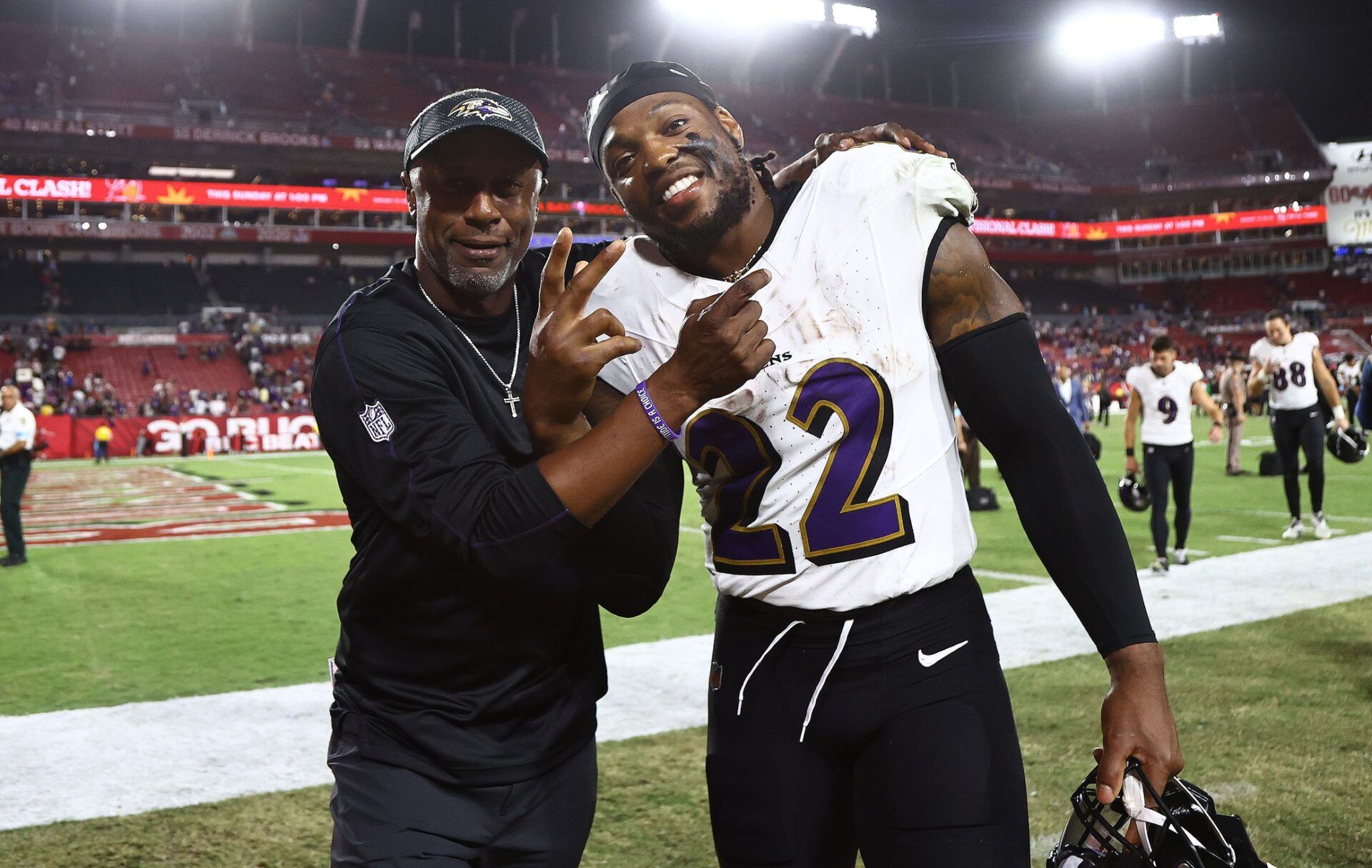The MVP is essentially a “best quarterback” award these days. But with Baltimore Ravens running back Derrick Henry in the midst of a phenomenal 2024 season, the possibility of a running back winning MVP is at least a faint possibility.
That raises the question — is it possible for a running back to win MVP?

History of Running Back MVPs
A non-quarterback has not won NFL MVP since 2012, and currently, Lamar Jackson is favored to win this year’s award.
But his teammate Henry has certainly made a case for himself. Henry has scored in each of his first nine games with Baltimore, the longest streak by a player to begin a stint with a team since at least the 1970 merger.
The two Ravens teammates talked about the possibility that they’d go head-to-head for MVP after the team’s Week 9 win over the Denver Broncos.
Lamar Jackson and Derrick Henry may have to duke it out for MVP, according to @tracywolfson.
King Henry gave his pick 👀 pic.twitter.com/24ptjTWnX1
— NFL on CBS 🏈 (@NFLonCBS) November 3, 2024
Henry leads the NFL in a multitude of categories, including rush yards (1,052), scrimmage yards (1,145), scrimmage touchdowns (13), and rushing touchdowns (11). He’s one of eight players in NFL history to hit 1,000 rush yards and double-digit rushing scores through a team’s first nine games.
The last two running backs to do this won MVP — and of the nine total seasons it happened, five of them resulted in MVPs:
- Shaun Alexander (2005 – won MVP)
- Terrell Davis (1998 – won MVP)
- Emmitt Smith (1995)
- Eric Dickerson (1983)
- O.J. Simpson (1975)
- Jim Taylor (1962 – won MVP)
- Jim Brown (three times – won MVP in 1958 and 1965)
It is definitely possible for a running back to win the award. That said, it is highly unlikely.
Since it was first awarded in 1957, 18 running backs have won the MVP award. Jim Brown is the only running back to win the award multiple times, taking home three in 1957, 1958, and 1965.
In the 21st century, there have been just four non-quarterback MVP winners, with top runners Marshall Faulk (2000), Shaun Alexander (2005), LaDainian Tomlinson (2006), and Adrian Peterson (2012) claiming the award.
Peterson came off a torn ACL that season and posted the second-most rushing yards in NFL history as he put up 2,097 yards on 348 carries and 12 rushing touchdowns.
It has been rare for running backs to win MVP in recent years as the NFL has shifted toward a pass-centric focus. Since 2000, quarterbacks have won 16 MVPs compared to the four that have gone to running backs. Specifically, the last 11 MVPs (2013-23) have been quarterbacks whose teams have been one of the top two seeds in their conference.
The big issue for Henry is that it typically takes an outstanding non-quarterback season AND a lack of standout passers for a non-QB to win MVP. Jackson has improved upon his 2023 MVP season, as the Ravens quarterback is on pace for 4,493 pass yards, 37 pass touchdowns, and 953 rush yards.
Those passing numbers are even better than his 2019 season (3,127 pass yards, 36 pass touchdowns), when he joined Tom Brady as the only players to win a unanimous MVP in NFL history.
Through Week 9, Jackson was averaging 0.35 EPA per dropback. For context, that would rank as the fifth-best season since 2000, trailing:
- 2004 Peyton Manning (0.45) – won MVP
- 2007 Tom Brady (0.41) – won MVP
- 2011 Aaron Rodgers (0.40) – won MVP
- 2005 Peyton Manning (0.36) – MVP runner-up to Shaun Alexander
As tremendous as Henry has been all season, the modern NFL dictates that even a moderately impressive quarterback season for a strong team will earn more serious MVP consideration.
Jackson has more than cleared that hurdle. Unless the Ravens’ QB1 regresses significantly over the second half of the season, the Ravens’ RB1 doesn’t have a serious prayer at snapping the running back MVP drought.

